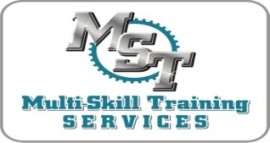OPERATIONS, MAINTENANCE, ENGINEERING, TRAINING, & ADMINISTRATION
5 Focus Areas of Efficiency for Managers: Managers often have the responsibility of defending their ever-shrinking budgets along with other department managers. Your role as manager may mean you have dozens of responsibilities. Focusing on 5 Areas of Efficiency may help.
#1 Operations: Effective implementation and control of operation activities can be overwhelming to managers. Are you aware of how to use safe, reliable, and efficient process operations? This can be a daunting task, but being cognizant of the status of all equipment and ensuring that operators are working to support a safe and reliable plant operation is where to begin.
#2 Maintenance: You may be responsible for ensuring effective implementation and control of maintenance activities. Your maintenance technicians are often the “behind the scenes” employees who are invaluable to the optimal performance and reliability of the plant system. Some plants have indicated that preventative maintenance is a weakness in their daily operations. Focusing on preventative maintenance may increase productivity and decrease down-time.
#3 Engineering: Do your engineers monitor activities that optimize equipment reliability and efficiency? Engineers should support maintenance technicians as well as line operators and other affected employees by monitoring implementation of equipment and processes. Engineers should also ensure the proper design, review, and documentation of equipment design changes in a timely manner. As a manager, you should oversee the engineers’ SOPs.
#4 Training: To conduct maintenance in a safe and efficient manner, maintenance technicians, line operators, and other employees often need training or re-training. Providing training is the most efficient use of time and money, and training or re-training operators always results in developing and improving skills. However, first assessing areas for improvement is critical. No manager wants to “waste time and money” on training employees in needless areas, and determining where training is needed and in what areas is the first step in increasing productivity.
#5 Administration: This area is often overlooked because of the shear time it requires. However, honing in on the organization, implementation, objectives, and assessment will improve this area. If you lack organization, planning and controlling is near impossible. How often do policies seem to “fall by the wayside?” Managers can establish and ensure effective implementation of policies by developing objectives. Personnel is a facet of this area, and managers must ensure that positions are filled with highly qualified individuals.
For more information visit our website at www.industrialmaintenancetraining.com
